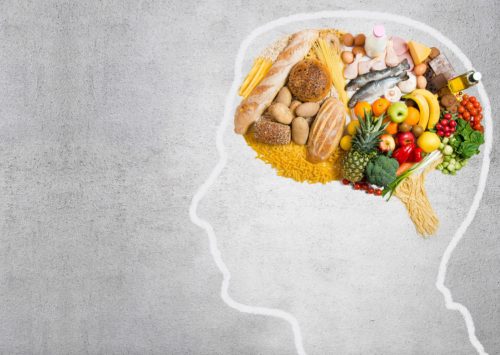“You are what you eat”, the food you choose may show your personal preferences and tastes, or reveal whether you care about environmental sustainability, but what is most relevant to you is that food affects brain function, growth, vitality, and even emotional ups and downs.
This articles will cover advanced vocabularies related to food nutrients. If you have a good understanding of food nutrients, this article will be a piece of cake for you.
[otw_shortcode_tabslayout tabs=”2″ tab_1_title=”Simplified Chinese” tab_1_content=”「人如其食」,你选择的食物可能展现个人的偏好与品味,或者透露了你是否关心环境永续发展,但与自身最息息相关的是,食物影响了大脑运作、生长发育、活力,甚至情绪起伏。
你知道如果把脑中的水份抽干,就只剩下了五种成份吗?脂肪、蛋白质、胺基酸、微量元素、葡萄糖,而大脑当然并不只是营养成分的总和,但是这几种物质的摄取将会影响大脑运作。来看看我们该怎么吃吧!
- 优质脂肪:强化大脑
大脑成份中,脂质(脂肪)占比非常大,这也就是为什么好的脂肪酸,例如omega 3-6 对大脑这么重要,这些脂肪酸有助于细胞膜的制造和维持,也能防止退化性脑病变,例如阿兹海默症。反之,若长期食用其他反式或饱和脂肪,例如油炸食物,也会对健康造成影响。 - 蛋白质与胺基酸:行为与情绪
蛋白质与胺基酸是生长和发育的基本营养素,影响我们的感觉和行为。若以医学术语来说,胺基酸含有神经传导物质的前体。这影响情绪、睡眠、注意力、胃口,也影响了女人最关心的体重。 - 微量营养素:帮助大脑长期运作
微量营养素包含了各种维生素、微量金属元素等,其中维生素中的B6、B12、叶酸可以强化大脑对抗自由基的侵害,若缺乏此类营养素则较容易得到脑部疾病或智力衰退。且维生素 B 群能帮助下面提到的葡萄糖充分利用,也能协助蛋白质代谢。 - 葡萄糖:大脑能量的来源,影响专注力
大脑只占了身体 2%,却耗费了20%的能量来源,而基本上,大脑最主要的能量来源为葡萄糖,或称血糖,会由我们所摄取的碳水化合物转化分解而成。
” tab_2_title=”Traditional Chinese” tab_2_content=”
「人如其食」,你選擇的食物可能展現個人的偏好與品味,或者透露了你是否關心環境永續發展,但與自身最息息相關的是,食物影響了大腦運作、生長發育、活力,甚至情緒起伏。
你知道如果把腦中的水份抽干,就只剩下了五種成份嗎?脂肪、蛋白質、胺基酸、微量元素、葡萄糖,而大腦當然並不只是營養成分的總和,但是這幾種物質的攝取將會影響大腦運作。來看看我們該怎麼吃吧!
- 優質脂肪:強化大腦
大腦成份中,脂質(脂肪)佔比非常大,這也就是為什麼好的脂肪酸,例如 omega 3-6 對大腦這麼重要,這些脂肪酸有助於細胞膜的製造和維持,也能防止退化性腦病變,例如阿茲海默症。反之,若長期食用其他反式或飽和脂肪,例如油炸食物,也會對健康造成影響。 - 蛋白質與胺基酸:行為與情緒
蛋白質與胺基酸是生長和發育的基本營養素,影響我們的感覺和行為。若以醫學術語來說,胺基酸含有神經傳導物質的前體。這影響情緒、睡眠、注意力、胃口,也影響了女人最關心的體重。 - 微量營養素:幫助大腦長期運作
微量營養素包含了各種維生素、微量金屬元素等,其中維生素中的B6、B12、葉酸可以強化大腦對抗自由基的侵害,若缺乏此類營養素則較容易得到腦部疾病或智力衰退。且維生素 B 群能幫助下面提到的葡萄糖充分利用,也能協助蛋白質代謝。 - 葡萄糖:大腦能量的來源,影響專注力
大腦只佔了身體 2%,卻耗費了20%的能量來源,而基本上,大腦最主要的能量來源為葡萄糖,或稱血糖,會由我們所攝取的碳水化合物轉化分解而成。
“][/otw_shortcode_tabslayout]
English translation:
“You are what you eat”, the food you choose may show your personal preferences and tastes, or reveal whether you care about environmental sustainability, but what is most relevant to you is that food affects brain function, growth, vitality, and even emotional ups and downs.
Do you know that if you draw up the water from your brain, there will be only five ingredients left? Fat, protein, amino acids, micronutrient, and glucose, are certainly not just a sum of nutrients in the brain; the intake of these substances will also affect the brain’s activity. Let’s see what we should eat!
- High-quality fat: strengthen the brain
Among the brain components, lipids (fat) account for a very large proportion, which is why good fatty acids, such as omega 3-6, are so important to the brain that they contribute to the production and maintenance of cell membranes and prevent degenerative brain disease, such as Alzheimer’s disease. Conversely, long-term consumption of other trans or saturated fats, such as fried foods, can also have an impact on health. - Proteins and Amino Acids: Behavior and Emotions
Proteins and amino acids are essential nutrients for growth and development, affecting our senses and behavior. In medical terms, amino acids contain precursors of neurotransmitters. This affects mood, sleep, attention, appetite, and affects the weight that women care most about. - Micronutrient: Helps the brain work for a long time
Micronutrient contains various vitamins, trace metals, etc. Among them, B6, B12, and folic acid in vitamins can strengthen the brain against free radicals. If such nutrients are lacking, it is easier to get brain disease or mental decline. Vitamin B group can also help the full use of glucose mentioned below, and can also help protein metabolism. - Glucose: The source of brain energy that affects concentration
The brain only accounts for 2% of the body, but it consumes 20% of the energy source. Basically, the brain’s main source of energy is glucose, or blood sugar, which is converted from the carbohydrates we ingest.
The article is rewritten from here to suit the levels of readers. photo is taken from here.

